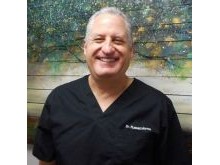 WELCOME TO DENALI DENTAL CARE
WELCOME TO DENALI DENTAL CAREAre you looking for a great dentist in Anchorage? At Denali Dental Care, we don’t just look after your dental needs, we work to make your dreams of a healthy, beautiful smile come true. We offer a full range of general dentistry, cosmetic dentistry, and reconstructive dentistry procedures. We also offer facial cosmetics to help you look refreshed, invigorated, and youthful.
Personalized dentistry means that you are at the center of our practice. When you speak, we listen. We understand your goals and anticipate your needs.
Outstanding care of course means outstanding results, but it also means you’ll have an outstanding experience at Denali Dental Care. Our friendly team will welcome you and help you feel at home right away. Our gentle touch approach starts with sedation dentistry for anxious patients and continues with compassionate care throughout your procedure.
Don’t be surprised if you find yourself looking forward to your next visit with an Anchorage dentist at Denali Dental Care.
Served areas
- Anchorage, Anchorage Borough, Midtown-Alaska, 99503, Spenard, Green Acres, Rogers, Campbell
Highlights and features
- Cosmetic Dentist
- Invisalign
- Dental Implant
- TMJ Treatment
- BOTOX
- Root Canal
Associations and certifications
- Academy of General Dentistry
- Alaska Dental Society
- ADA (Amercan Dental Association)
- AAFE (American Academy of Facial Esthetics)
- Anchorage Dental Society
Follow us
Services
 Many people think that preventive maintenance of their teeth is unnecessary. They think that the mantra “if it ain’t broke. don’t fix it” means that they should only go to the dentist when they have serious oral health problems like tooth pain, a loose tooth, or bleeding gums. But there are actually many benefits to making your regular dental visits, including:
Many people think that preventive maintenance of their teeth is unnecessary. They think that the mantra “if it ain’t broke. don’t fix it” means that they should only go to the dentist when they have serious oral health problems like tooth pain, a loose tooth, or bleeding gums. But there are actually many benefits to making your regular dental visits, including:- Get teeth cleaner than at home
- Learn how to adjust hygiene routine for maximum benefit
- Detect and repair tooth problems when they’re minor
- Screen for related oral health problems
- Getting your professional cleanings can save you a lot of money, and maybe even your life.
If you were perfect at cleaning your teeth, it might not be necessary to get your teeth cleaned at our office. But nobody’s perfect. And if there are some parts where you’re not removing all the plaque from your teeth, that plaque will absorb minerals from your saliva. These minerals are intended to harden your teeth, but they can also harden dental plaque into a form we call tartar or dental calculus. Once it is hardened, you can’t remove it with a toothbrush or floss, and it becomes a shelter for bacteria, which can then grow, causing more damage to your teeth and gums.
 Gum disease is caused by harmful oral bacteria that overpopulate in the mouth. Sometimes good bacteria can be “turned” into bad bacteria. And the immune system can even cause some of the damage to your gums, teeth, and bones, either because it’s been subverted or because it’s trying so hard to fight the infection that your bone is just collateral damage. So how do you keep bad bacteria under control?
Gum disease is caused by harmful oral bacteria that overpopulate in the mouth. Sometimes good bacteria can be “turned” into bad bacteria. And the immune system can even cause some of the damage to your gums, teeth, and bones, either because it’s been subverted or because it’s trying so hard to fight the infection that your bone is just collateral damage. So how do you keep bad bacteria under control? First, eat a healthy diet low in sugars and refined carbs. These feed dangerous bacteria. Second, make sure to brush and floss as recommended. Third, make your regular appointments for cleaning and routine exams.
However, some evidence suggests that there is a strong genetic component in gum disease risk. You may do everything right, and still end up with it.
So, how do you deal with gum disease? If it’s detected early enough, you may be able to get away with just changing your oral hygiene habits or making more regular dental visits.
If you require treatment, we utilize a diode laser to perform the procedure. This laser causes much less discomfort and less bleeding than traditional treatments. You’ll heal faster, too.
If laser treatment doesn’t work, though, you may need surgery.
 Signs You Might Need a Filling
Signs You Might Need a FillingHow do you know you need a filling? Ideally, you are getting regular dental cleanings & exams, and your dentist will be able to identify your need. But what about between visits or if you’re overdue for an exam? Here are some signs to watch out for:
- Discolored (brown, black, or chalky white) spot on the tooth
- Visible hole in the tooth
- Food gets stuck in teeth
- Tooth sensitivity or pain
For some cavities, it’s easy to see the problem. You might see a small black pit on your tooth, like a fleck of pepper that won’t wipe away. Sometimes, you’ll notice a larger, discolored region on the tooth. This may be brown, black, but it may also be whiter than the surrounding areas. When teeth start losing minerals (see below) they can change to a whiter shade, before cavities form. If you get treatment for these discolored areas, you may be able to avoid a filling.
Other times, you may not be able to see the cavity, but you can feel it. You might notice that you are getting more food stuck in the region than in the past. Or you might notice that your tooth is painful in a way that it wasn’t in the past, sensitive to pressure or temperature changes.
 What Juvéderm Can Do
What Juvéderm Can DoJuvéderm is a facial filler. It works by adding or restoring volume to the face. It is commonly used in many areas of the face, including:
- Lip augmentation
- Around the mouth to eliminate parenthesis lines
- Under eye area to eliminate dark hollows or tear trough
- Cheeks to add or restore a youthful, healthy volume
You can choose whether you want one or more areas treated. Typically, facial rejuvenation can be completed in several locations as part of the same procedure.
 Why Do They Need to Be Extracted?
Why Do They Need to Be Extracted? Wisdom teeth are relics from our history, when we needed more teeth. In the past, people ate much rougher food than they do now. As a result, our teeth would often be badly worn out, especially molars used for grinding rough foods. People needed new molars to replace the old ones so they could keep chewing throughout their lives (up to the ripe old age of 50 or so) . But with our modern, processed diet, we don’t need the extra molars.
And the molars become a problem because less aggressive chewing means that our jaws don’t grow as large as they used to. Now there’s not enough room for these extra teeth. If they are allowed to come in, wisdom teeth can cause serious complications, including:
- Crowded and crooked teeth
- Damage to neighboring teeth
- Difficulty cleaning
- Gum disease
- Infected teeth
- Tumors and cysts (mostly benign)
- Jaw misalignment, TMJ, headaches, and related problems
When your wisdom teeth first begin to develop, we will see them in your x-rays. We’ll be able to evaluate the development of the teeth, predict their path of development and emergence, and predict when and how they’ll emerge. If it looks like they will become impacted (run into other teeth) or cause other problems, we will recommend having them removed before they cause problems.
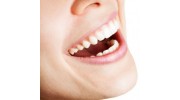 That’s why it’s so great that modern cosmetic dentistry allows us to correct virtually any complaint you may have about the appearance of your smile. We can help if you’re unhappy with the appearance of:
That’s why it’s so great that modern cosmetic dentistry allows us to correct virtually any complaint you may have about the appearance of your smile. We can help if you’re unhappy with the appearance of:- Discolored teeth
- Chipped teeth
- Small or poorly shaped teeth
- Crooked teeth
- Gaps between teeth
- Missing teeth
In fact, we typically have more than one solution to each of these problems. This helps you choose the solution that is best for you so you not only get the best results, you have the best experience.
 Invisalign is a relatively new approach to straightening teeth, but it’s grown tremendously in popularity. That’s because it offers many benefits over traditional braces, including:
Invisalign is a relatively new approach to straightening teeth, but it’s grown tremendously in popularity. That’s because it offers many benefits over traditional braces, including:- No brackets or wires
- Removable aligners
- No diet restrictions
- No special cleaning tools or techniques
- Little irritation of lips and cheeks
- Faster than traditional braces
The most obvious benefit of it is that there are no brackets or wires attached to your teeth. Instead, Invisalign uses clear plastic aligners. These aligners are removable, which has many benefits.
Because the aligners can be removed for eating, you don’t have any diet restrictions. You can continue to eat all the foods you enjoy, including popcorn, pizza, bagels, steak, and more. There’s no worry that foods will dislodge brackets, nor will food get stuck in them. And that’s another benefit of Invisalign. The removable aligners mean that you won’t get food stuck in them, so there’s no special cleaning required. Just brush and floss normally. You will have to brush and floss more often, but there’s no need for special tools or techniques.
The plastic aligners are also smooth and comfortable–they won’t poke, scrape, or irritate your lips and cheeks. Plus, with recent innovations, Invisalign is faster than ever–faster than traditional braces in many cases.
 The Goals of Smile Design
The Goals of Smile DesignEvery smile design procedure is unique, personalized to your goals and the current condition of your smile, so we can’t necessarily talk about the smile design procedure in general. But we can talk about the general goals of smile design, because these are always the same:
- Give you the smile you desire
- Beautiful results
- Natural appearance
- Healthy smile
We strive to achieve these goals for all our smile design patients, and we can achieve them for you, too.
 Do you have sleep apnea? The only way to tell for sure is with a sleep test, but there are some symptoms that you (and others) can watch for that might give clues.
Do you have sleep apnea? The only way to tell for sure is with a sleep test, but there are some symptoms that you (and others) can watch for that might give clues. You might notice these symptoms:
- Daytime sleepiness
- Falling asleep during mundane tasks
- Feeling unrested when you wake in the morning
- Difficulty with memory or focus
- Moodiness
- Waking up frequently to urinate
- Dry mouth in the morning
- Morning headaches
But you also need to be aware of observations people who sleep in the same room or house with you might make. If people say you:
- Snore loudly
- Make a gasp or choke during sleep
- Stop breathing while asleep
- Sleep restlessly
You might have sleep apnea. You should also be aware that if your doctor diagnoses you with:
- High blood pressure
- Coronary artery disease
- Diabetes
- GERD
- Sexual dysfunction
- Low testosterone
- Hypothyroidism
- Depression and other mood disorders
You may be at risk for sleep apnea. Sometimes, these are misdiagnoses–some of these conditions are mistaken for sleep apnea. Other times, these conditions are related to or caused by it. If you have these symptoms or conditions, it’s important to talk to your doctor about sleep apnea or talk to a sleep dentist who can recommend a home sleep test.
 Dangers of Snoring
Dangers of SnoringPeople often dismiss snoring as a nuisance. While it is certainly a nuisance, it can have many serious complications, including:
- Lost sleep
- Sleep apnea
- Poor quality sleep
- Cardiovascular disease
- Falling asleep at the wheel
- Domestic violence
When there’s a snorer in the house, everyone loses sleep. People that share the bedroom with the snorer, and even those who are in other rooms can lose sleep. And even though it may look like the snorer is sleeping peacefully, they’re losing sleep, too. Many people who snore have sleep apnea. This means that they stop breathing potentially hundreds of times a night and have to wake up slightly to start breathing again. They may not be aware that they’re waking up, but they are losing a lot of sleep and not reaching the deeper, restorative stages of sleep. Even without sleep apnea, snoring is a sign that your breathing is obstructed and you’re not really getting restful sleep.
The vibrations of snoring can damage the arteries in your neck and chest. This creates tiny injuries that cause scarring of the arteries that become the starting point of atherosclerosis, hardening of the arteries. This in turn can contribute to your risk of stroke or heart attack. People who snore are more likely to fall asleep at the wheel and have more accidents.
And we can’t neglect the conflicts that arise around snoring. When it disrupts people’s sleep, they are less empathetic and more confrontational. This can start as arguments, but, if left unchecked, can lead to violence in the house.
 Tooth discoloration is often a part of aging, and lifestyle choices like smoking, drinking coffee or wine, and eating berries all cause tooth staining. Teeth whitening effectively removes stains to give you a brighter, more youthful smile
Tooth discoloration is often a part of aging, and lifestyle choices like smoking, drinking coffee or wine, and eating berries all cause tooth staining. Teeth whitening effectively removes stains to give you a brighter, more youthful smileIf your teeth are discolored and you want to whiten them, you have many options you can choose. Among the most common are:
Over-the-counter whiteners
In-office teeth professional whitening
At-home professional whitening
Each technique has its own benefits and limitations. You may want to try several to find the one that’s best for you.
 Not only are dental veneers capable of doing a lot for your smile, they often do it better than competing treatments. If you have discolored teeth, teeth whitening won’t always do the trick. But dental veneers can cover discolored teeth so that you can enjoy a brighter smile, no matter the cause of your discoloration. And while whitened teeth will become stained again, porcelain veneers are stain resistant and will maintain their whiteness for years, even decades if properly cared for.
Not only are dental veneers capable of doing a lot for your smile, they often do it better than competing treatments. If you have discolored teeth, teeth whitening won’t always do the trick. But dental veneers can cover discolored teeth so that you can enjoy a brighter smile, no matter the cause of your discoloration. And while whitened teeth will become stained again, porcelain veneers are stain resistant and will maintain their whiteness for years, even decades if properly cared for. Crooked teeth and teeth gaps can be resolved using orthodontic treatments, but for many people, dental veneers may be a better choice. That’s because veneers can achieve results much faster. While orthodontic treatments like Six Month Smiles and Invisalign are a lot faster than older orthodontic treatments, they’re still not as fast as veneers, which can get results in a weeks rather than months. And because veneers can reshape and whiten your teeth at the same time, they’re a great choice for anyone who has more complaints than just the crookedness of their teeth.
 In their most basic form, dentures are one or more replacement teeth that are set in a base which sits on your gums. They can help restore some of the functions of your teeth. If they’re well-made, you should be able to:
In their most basic form, dentures are one or more replacement teeth that are set in a base which sits on your gums. They can help restore some of the functions of your teeth. If they’re well-made, you should be able to:- Smile
- Chew
- Maintain a comfortable, healthy jaw position
Modern dentures can be very attractive, if you invest in quality materials and workmanship. Many dentists and clinics offer cheap ones that may look fake and unattractive. If your smile matters to you, make sure you ask about the quality of dentures you’re buying.
Most people with dentures chew better with them than they do without them. This is important because it makes sure that people can continue to eat a diverse, healthy diet as they get older, which can help them stay healthier for longer.
They can also help you keep your jaws in the right place. If you removed your teeth and don’t replace them, your mouth collapses, which can impact your facial appearance and can cause jaw pain, neck pain, and other TMJ symptoms.
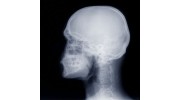 How do you know if you have TMJ? You might look out for some of the common symptoms of the condition, such as:
How do you know if you have TMJ? You might look out for some of the common symptoms of the condition, such as:- Bruxism sleep testing kit to help diagnose TMJ.
- Sleep Testing Kit
- Jaw pain
- Jaw popping or clicking
- Bruxism (teeth clenching and grinding)
- A bite that often feels wrong
- Chipped, worn, or cracking teeth
- Headaches (including migraine)
- Neck pain
- Earache or fullness
- Tinnitus (ringing or other sounds in the ears)
- Vertigo or dizziness
- Tingling and numbness in the fingers
Some of these symptoms seem logical, but others can be hard to see the connection. That’s part of the reason why TMJ can go undiagnosed for such a long time, or can be misdiagnosed as many different problems.
People may get treatment for headaches or neck pain, such as chiropractic care, but find that the results aren’t as promised because the true problem is elsewhere.
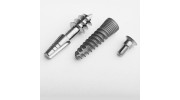 Dental implants have become the most in-demand tooth replacement option because of all the benefits they offer. Dental implants:
Dental implants have become the most in-demand tooth replacement option because of all the benefits they offer. Dental implants:- Look like natural teeth
- Function like natural teeth
- Can replace any number of teeth
- Require only simple maintenance
- Can last for a lifetime
They can look just like natural teeth. Your gums grow right up around the implant, so there’s no sign that the implant isn’t a natural tooth. Modern cosmetic dentistry also ensures that the crown is a perfect match for your natural teeth.
Dental implants are anchored in your bone, similar to natural teeth. This means that they can function like natural teeth. You can eat all your favorite foods, speak clearly, and do anything with implants that you could do with natural teeth–you won’t lose them.
They can be used to replace just a single tooth, a few teeth, or an entire arch of teeth. No matter how many teeth you are missing, dental implants can replace them.
They are easy to maintain. Just brush, floss, and make your regular dental visits. That’s all.
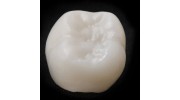 Dental crowns are very versatile restorations that get called on to help in many situations where teeth need support. This can include:
Dental crowns are very versatile restorations that get called on to help in many situations where teeth need support. This can include:- Badly decayed teeth
- Cracked teeth
- Small or worn teeth
- Unattractive teeth
- Missing teeth replaced with bridges or dental implants
When teeth are slightly decayed, a filling can be used to replace the lost part of the tooth. When it becomes badly damaged, it may need additional protection and support to keep from cracking. In these cases, root canal therapy might also be recommended.
When teeth are cracked so that they aren’t stable, a dental crown can provide them support so that they can continue to function properly.
When teeth are naturally small or have been worn down because of a bad bite, you might want to build them back up. In some cases, porcelain veneers can be used for this, but in other cases, only a dental crown is strong enough to provide the proper support.
Because a dental crown completely covers the exterior of a tooth, it can make unattractive teeth beautiful again. The tooth may be discolored, damaged, or crooked before the crown is placed. But after it will be beautiful, white, whole, and straight.
If you have lost one or more teeth, a crown can help replace them with dental bridges or implants. A dental crown attaches to a bridge to provide the support needed for the replacement tooth. A crown can also fit over a dental implant to provide the visible portion of the restoration.
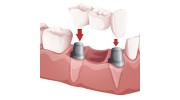 A dental bridge is a tooth replacement option that uses dental crowns attached to replacement teeth to bridge a gap in your smile. The crowns fit over natural teeth and are bonded for support. Dental bridges are:
A dental bridge is a tooth replacement option that uses dental crowns attached to replacement teeth to bridge a gap in your smile. The crowns fit over natural teeth and are bonded for support. Dental bridges are:- No surgery required
- Attractive
- Permanently fixed in your mouth
- Fully functional for biting, chewing, and speaking
- Long-lasting
Dental bridges aren’t implanted into your jawbone. That means you don’t need surgery to place them. It’s a procedure more like the placement of a regular dental crown. They fit seamlessly into your smile. The dental crowns and replacement teeth perfectly match your natural teeth to give you a renewed and attractive smile. With the crowns bonded to your natural teeth, dental bridges don’t have to be removed for cleaning. They can be worn at all times, so they’re always there when you smile.
And because they’re fully fixed, dental bridges work just like natural teeth for biting, chewing, and speaking. You can forget about your bridge most of the time. Dental bridges don’t last as long as dental implants, but they can still be very long-lasting. A well-placed and properly maintained dental bridge can last ten or fifteen years.
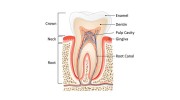 An infected tooth, also called an abscessed tooth, is a serious dental condition, and it should be treated as an emergency. How do you know you have an infected tooth? Here are some common symptoms:
An infected tooth, also called an abscessed tooth, is a serious dental condition, and it should be treated as an emergency. How do you know you have an infected tooth? Here are some common symptoms:- Spontaneous tooth pain
- Lingering sensitivity to heat and cold
- Dental pain that wakes you or keeps you from sleeping
- Discolored tooth
- Constant bad breath or foul taste in the mouth
- Swollen area like a pimple on gums
- Localized warm area near tooth
Most people associate a severe toothache with an infected tooth. But not all infected teeth are painful. They may have little pain, or the pain may flare up at first, then diminish when the tooth nerve dies.
If one of your teeth spontaneously turns darker than the others without any recent trauma, you should suspect a tooth infection.
The oral bacteria living inside your tooth may produce foul-tasting, smelly compounds. As these leak out, you might notice a constant bad taste or smell from your mouth.
As infection spreads from your tooth to the bone, it can create an abscess on your gums, a swollen area like a pimple. This pimple may remain whole, or it may burst, causing pus to leak out. The area of infection might feel warmer than the surrounding area because the oral bacteria are reproducing and your body is responding.
An infected tooth can even trigger your body’s immune system to run a fever. Other times, you might notice that you’re coming down with more common and worse colds than normally. That’s because your immune system is stressed by the infection.
 Sedation dentistry can help you relax during a dental visit. This can help you have a more pleasant experience at the dentist, allowing you to overcome problems like:
Sedation dentistry can help you relax during a dental visit. This can help you have a more pleasant experience at the dentist, allowing you to overcome problems like:- Dental anxiety
- Difficulty getting numb
- Strong gag reflex
- Sore jaw, neck, or back
- Difficulty sitting still
- Needing many procedures at once
Sedation dentistry can help you achieve a calm, relaxed state so that you don’t experience dental anxiety. It’s sometimes called sleep dentistry, although you don’t usually sleep when using sedation.
Many people with minor dental anxiety don’t realize their symptoms are caused by anxiety. People who have trouble getting numb are often burning through anesthesia because they are anxious. Anxiety can also make people very aware of objects in their mouth, increasing the severity of the gag reflex. And anxiety can make people tense up, which makes their jaw, neck, or back sore after a dental appointment. It’s also hard to sit still for treatment when you’re anxious.
Sedation dentistry can also help make dental appointments more convenient. If you need several dental procedures and don’t want to have to make multiple visits, sedation dentistry can make it easier for you to sit still during your treatment.
 Dental implants function like natural teeth because, like natural teeth, their anchored in your jawbones. However, by the time you get your dental implant, there might not be enough bone to secure the implant. That’s when we’d use a sinus lift or other bone graft to expand the bone so your implants can be strong and successful.
Dental implants function like natural teeth because, like natural teeth, their anchored in your jawbones. However, by the time you get your dental implant, there might not be enough bone to secure the implant. That’s when we’d use a sinus lift or other bone graft to expand the bone so your implants can be strong and successful. But why might you be missing bone in the first place? You might have lost bone as a result of:
- Natural aging
- Gum disease
- Tooth infection
- Extraction procedure
- Time since teeth were lost
People naturally lose bone in the jaw with age. If you have osteoporosis or other bone conditions, you might lack bone density or volume to secure implants.
Gum disease attacks your gums and the bone supporting teeth. If it damages your bone too much, we might have to expand the bone in the areas where your implants will be placed.
If your tooth gets infected, a root canal treatment will remove the infection and can make your tooth functional again. But if untreated, infection can spread from the tooth into the bone, weakening it.
An extraction should be performed to preserve your natural bone, but it isn’t always. Some extractions may damage bone and require treatment to repair it before you get implants.
Your body might also remove bone tissue once your teeth are gone. Teeth (and dental implants) stimulate bone so that your body maintains it. But once the tooth is lost, your body will remove the bone, and there may not be enough left.
 Full mouth reconstruction is used when a tooth-by-tooth solution is no longer adequate to address your dental problems. We use it when treating just one or a few teeth wouldn’t solve the problem and may actually cause damage.
Full mouth reconstruction is used when a tooth-by-tooth solution is no longer adequate to address your dental problems. We use it when treating just one or a few teeth wouldn’t solve the problem and may actually cause damage. It’s not unusual for people to come in looking for a solution to a certain problem, such as pain in one tooth, or an unattractive smile, but in reality the source of the problem is much bigger than they suspected.
Common reasons why you might need full mouth reconstruction include:
- Tooth erosion and decay
- Gum disease
- Bad bite
- Trauma
With decay, you might notice that one or more teeth might have cavities, but erosion can be more subtle. Teeth might be badly damaged, but they seem healthy, for now, or perhaps slightly discolored. Eroded teeth are best treated before they start to fail.
Gum disease can impact many teeth at once. When oral bacteria infect the space between teeth and gums, it isn’t just impacting gums, it’s impacting the bone that secures your teeth. Teeth can begin shifting and may be lost. Until the whole mouth is made healthy again, all teeth can be at risk.
A bad bite subjects your teeth to excessive or imbalanced forces. This can cause some teeth to get worn down or fail, which can further imbalance forces, promoting even more damage. A successful solution often requires treating many or all teeth at once to restore a balanced bite.
Trauma can impact many teeth at once. Sometimes, even though a few teeth are impacted directly, the result may be a bad bite that damages other teeth.
 It works by calming over-excited muscles. Our muscles are designed to learn and anticipate our motions. This is muscle memory, and it’s usually a good thing. It helps us drive, dance, play sports, and do dozens of other complex tasks without having to think about each individual motion.
It works by calming over-excited muscles. Our muscles are designed to learn and anticipate our motions. This is muscle memory, and it’s usually a good thing. It helps us drive, dance, play sports, and do dozens of other complex tasks without having to think about each individual motion. But sometimes the anticipation doesn’t match what we actually wanted. Our facial expressions demand certain muscles movements, and our muscles get habituated to them, and hold them. Each wrinkle treated by BOTOX ® Cosmetic is a part of a facial expression (a smile, a pout, a frown) that has become frozen in place. It relaxes the muscles, releasing those frozen expressions. This can not only make you look younger, it can eliminate the perception that you are angry, tired, or sad on a daily basis.
 In recent decades, injectable facial rejuvenation treatments, sometimes called a nonsurgical facelift, have grown greatly in popularity because they offer many benefits. These treatments are:
In recent decades, injectable facial rejuvenation treatments, sometimes called a nonsurgical facelift, have grown greatly in popularity because they offer many benefits. These treatments are:- Quick
- Effective
- Minimally invasive
- Safe
These treatments are so quick that you can have them done over the course of a lunch hour. Just stop in for a treatment, which takes only a few minutes, and be back at work with no-one being the wiser. They can also be added to a normal dental appointment for added discretion.
The treatments are very effective when used for the right type of effect. A quick consultation will allow us to let you know whether these treatments will benefit you.
The treatments are minimally invasive, just a simple injection, or a few injections in some cases. There is no need to take any time off. You can typically go right back to work or play right after treatment. Because the treatments are so minimally invasive, they’re also very safe.
 There are many things that people like about Six Month Smiles. They are happy with it because it:
There are many things that people like about Six Month Smiles. They are happy with it because it:- Is faster than traditional braces
- Has short tightening appointments
- Causes less discomfort than traditional braces
- Costs less than many other orthodontic treatments
- Gives predictable results
- Subtle appearance
Although there are many options for straightening your teeth, these benefits make Six Month Smiles an outstanding choice.
 TMJ is a complex disorder, and its relationship to headaches is equally complicated. There are at least three different types that are commonly associated with TMJ:
TMJ is a complex disorder, and its relationship to headaches is equally complicated. There are at least three different types that are commonly associated with TMJ:- Tension headaches
- Migraines
- Referred pain headaches
Each of these has a specific causal relationship to TMJ, and understanding the link also explains the type of pain, and why TMJ treatment works.
 Reconstructive dentistry is a lot more common than you think. Many of the beautiful smiles you see on a daily basis are only beautiful because of reconstructive dentistry. That’s because there are many reasons why people can experience serious damage to their smiles, including:
Reconstructive dentistry is a lot more common than you think. Many of the beautiful smiles you see on a daily basis are only beautiful because of reconstructive dentistry. That’s because there are many reasons why people can experience serious damage to their smiles, including:- Decay
- Erosion
- Bad Bite
- Trauma
Tooth decay is when bacteria in your mouth attack your teeth. It starts by affecting just one tooth, and can be treated with a simple general dentistry procedure like a filling. But once decay starts, it will spread if left untreated. Badly damaged teeth need more extensive treatment, and if one tooth is left untreated, it is likely others will need treatment in the future, too.
Erosion occurs when acid in your mouth dissolves your teeth. It can attack all your teeth, although there are often localized areas of more severe attack. Common sources of acid are foods, drinks, and stomach acid. Erosion and decay often work together to significantly damage your teeth.
Bad bite occurs when your bite system isn’t working harmoniously. It subjects your teeth to significant force, leading to bad wear, chipping, cracking, and tooth loss. Teeth weakened by decay or erosion are more vulnerable to the effects of a bad bite.
Many different types of trauma can inflict bad damage to your teeth. Traffic accidents, sporting accidents, falls, and violence are the leading causes of tooth trauma that require reconstructive dentistry.
People

Dr. Russell Morrell and Dr. Kendall Skinner
Anchorage Cosmetic Dentists
Dr. Russell Morrell
graduated from Southern Illinois University in 1990, where he received his Doctor of Dental Medicine degree. Prior to this, he attended Southern Utah University, where he received his undergraduate training in chemistry and biology.
Dr. Morrell has over 25 years of experience and extensive training in general and cosmetic dentistry. His commitment to providing quality patient care has driven him to complete higher education training courses beyond state licensure requirements. He loves the diversity of learning and working in all areas of the dental field, and practices the newest advancements in cosmetic dentistry, implants, no drill fillings, root canals, crowns, dentures & laser technology.
Dr. Kendall Skinner
graduated from Temple University School of Dentistry in 2004, but it was even before that that he came to see himself as an Alaskan, having served an externship for the Indian Health Service in Bethel.
As a dentist, he is constantly looking to take on some of the biggest challenges in dentistry, focusing on advanced surgical training. He has been certified in the placement of All-on-4 implant dentures. He has been trained in performing one of the most complicated bone graft procedures, the sinus lift. And he has both training and experience in handling challenging wisdom tooth extractions.
And Dr. Kendall has never neglected the comfort of his patients, learning IV sedation procedures to help people with the highest levels of anxiety and those undergoing the most complex dental procedures. And he learned extensively about providing patients with the best experience at the Pankey Institute.
graduated from Southern Illinois University in 1990, where he received his Doctor of Dental Medicine degree. Prior to this, he attended Southern Utah University, where he received his undergraduate training in chemistry and biology.
Dr. Morrell has over 25 years of experience and extensive training in general and cosmetic dentistry. His commitment to providing quality patient care has driven him to complete higher education training courses beyond state licensure requirements. He loves the diversity of learning and working in all areas of the dental field, and practices the newest advancements in cosmetic dentistry, implants, no drill fillings, root canals, crowns, dentures & laser technology.
Dr. Kendall Skinner
graduated from Temple University School of Dentistry in 2004, but it was even before that that he came to see himself as an Alaskan, having served an externship for the Indian Health Service in Bethel.
As a dentist, he is constantly looking to take on some of the biggest challenges in dentistry, focusing on advanced surgical training. He has been certified in the placement of All-on-4 implant dentures. He has been trained in performing one of the most complicated bone graft procedures, the sinus lift. And he has both training and experience in handling challenging wisdom tooth extractions.
And Dr. Kendall has never neglected the comfort of his patients, learning IV sedation procedures to help people with the highest levels of anxiety and those undergoing the most complex dental procedures. And he learned extensively about providing patients with the best experience at the Pankey Institute.
Photos
Videos
Get to Know Denali Dental Care
Learn more about your local dentist in Denali, Alaska
625 E 34th Ave Suite 200
Anchorage, AK 99503
www.denalidentalcare.com
(907) 274-7691
Sleep Apnea | Denali Dental Care
Learn how we can help at https://www.denalidentalcare.com/sleep-apnea/!
Anchorage, Alaska
(907) 274-7691
Reviews (29)
Gina Hollomon
Jan 09, 2022
Jeff Herndon
Dec 21, 2021
Dr Maisey and Team Save Boston Traveler! On my way home from Dutch Harbor to Boston I developed an abscess tooth 4 days before leaving Dutch. Arriving in Anchorage in deep deep pain the Denali team got me only to discover the abscessed tooth. There would be high risk to get back on a plane. I was petrified to have tooth pulled while awake but Dr Maisey made it easy. Incredible team. Huge thanks
Jerry Brawn
Dec 21, 2021
Great experience! I was flossing my teeth before going to bed and a cap popped off of one of my teeth. this was 3 days before Christmas and as soon as dentists offices started opening up I was on the phone desperately trying to find someone who could get me in and fix the gap in my smile. after calling about 10 dentists with no luck. I called Denali Dental care. not only were they very friendly but they understood how panicked I was. they got me right in. the dentist was friendly and professional. They told me how much it would cost before they did the work and in about an hour I walked out smiling from ear to ear. I would recommend them highly and Merry Christmas
Ole Jordan
Dec 21, 2021
Great staff! Laughed at my jokes and I have clean teeth. Although, the hygienist may be dodging my jokes as Dr. Bliss has cleaned my teeth the last two times : They asked me how are my teeth and gums? I said fine, how are yours? Dr. Bliss said I shouldn't pick my teeth around my friends, it's gross. I said he has the wrong kind of friends. See you guys in four months and I will be nice to the hygienist, even if I am getting a complex. It can't be my teeth, could it?
L.
Dec 19, 2021
Denali Dental Care provides personalized care each time I visit. The hygienist does a superb job cleaning my teeth and addressing future concerns. The dentist performs a thorough exam and I feel the team is really looking out for my overrall health. Because of the fun and professional way the team interacts with me I look forward to my dental visits.
Stephanie Sheperd
Dec 14, 2021
Allen Lee Kirby
Nov 28, 2021
Swee Lin Wolgemuth
Nov 23, 2021
My husband and I have been with Dr. Maisey for many years. He is a very skilled, compassionate and caring Dentist. When I have had a procedure done, Dr. Maisey followed up with a phone call to me the next day to see if I had any questions and how I was doing. This is a vey caring and compassionate act and I feel very appreciated and well taken care by him.
The staff, Tanya and Trisha, hygienist Lyn and dental assistant Kim, are very caring and friendly and made me feel at home. If you are in need of a Dentist, I highly recommend Dr. Maisey and his office.
The staff, Tanya and Trisha, hygienist Lyn and dental assistant Kim, are very caring and friendly and made me feel at home. If you are in need of a Dentist, I highly recommend Dr. Maisey and his office.
Claire Coppel
Oct 30, 2021
Kimberly Whitehead Erickson
Oct 29, 2021
Cami St George
Jul 31, 2021
Denali was able to fit me into their busy schedule on a short notice! The front desk staff were an absolute joy to work with =) super polite and welcoming. Dr Morrell was amazing! I usually have anxiety getting dental work, but he and the dental assistants made getting a root canal a breeze. I will be returning there for all my dental needs =) THANKS AGAIN TEAM DENALI!
Rebecca Sunde
Jul 26, 2021
Dr Morrell was very professional and personable, putting me at ease throughout my entire procedure. The office staff was also very friendly and professional. The only area of opportunity was communication regarding getting my pre-op medication prescription filled earlier as well as giving me my pre op and post op instructions sooner than the evening before my procedure. Overall though I thought they did a great job and I'd recommend them to anyone.
Hailey Williamson
Jun 18, 2021
I've been a long time patient, over 20 years with the same dental insurance. When I went to check out after my routine 6-month appointment I learned they were no longer in network for my insurance. I understand the change, but it would have been nice to know in advance, or when at my last appointment that this was happening BEFORE check out. I will be looking for a new dental office now.
Sharon Frascati
Mar 19, 2021
Bob Child
Feb 17, 2021
Chuck Livers
Jan 17, 2021
I enjoy coming to my dental appointments at Denali Dental Care. They are very conscientious about COVID precautions and are efficient, professional, and kind. My hygienist is wonderful both professionally and personally. She does a great job on my teeth and is very pleasant to converse with! Billing is done efficiently and w/o undue pressure. My dentist, Dr. Maisey, is accomplished, easy-going, gentle, and caring. I would highly recommend this dental clinic!
Andrea Marroquin
Nov 23, 2020
Visiting from CA Linda answered the phone and was the absolute sweetest, scheduled me in same day. Michelle helped me get checked in, also super sweet. Amy got me all prepped and was so nice to talk to, another sweet team member! Then Dr. Morrell fixed me up and was so sweet and helpful! If I lived here, they would hands down be my go to dentist office! Thank you Denali Dental care you all are the best! Hello from CA!
Tina Stanley
Feb 11, 2018
Tina Stanley
Feb 11, 2018
Edgar Bergeron
Oct 23, 2016
Karen N.
The staff is friendly, professional, and prompt. Dr. Morrell and technicians are kind and take the time to answer questions, explain things and provide suggestions. I switched to Dr. Morrell a couple of years ago based on a recommendation and I have been so happy with the service ever since. I wish I would have switched years ago.
Donna A.
Neil B.
Dr. Morrell and his staff are always great--front desk, hygienist, tooth-sawer. Just kidding, there is no tooth sawer. But they are all very professional and great with the billing and hey, they even have their own lip balm now. How great is that? I've been a customer for over a decade and highly recommend.
Ben A.
Melissa Brown
The best customer service comes from offices that take the time to invest in their patients and show a genuine interest in their needs.
Denali does a good job at this, I can honestly say they make me feel valued and appreciated. If I had to rate Dr. Bowman and Dr. Kendall 1 to 100, with one hundred being best, I would give them more than one hundred.
Denali does a good job at this, I can honestly say they make me feel valued and appreciated. If I had to rate Dr. Bowman and Dr. Kendall 1 to 100, with one hundred being best, I would give them more than one hundred.
Trevor Embry
David Burman
Denali Dental has been taking care of me for for close to 20 years. Lyn has a wonderful chair side manner. Its like having mom take care of me. They put a lot of effort into accommodating my hectic work schedule, and helping me navigate my insurance issues. Dr Morrell is very easy going, comfortable to work with. The entire staff puts focused effort on making sure that every visit is smooth sailing. Thanks to all of you at Denali Dental.
Vern T.
Edgar Bergeron
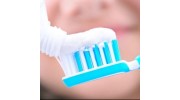 Ensuring the health and beauty of your natural smile is what general dentistry is all about. A combination of preventive and restorative treatments protect and repair your teeth from disease.
Ensuring the health and beauty of your natural smile is what general dentistry is all about. A combination of preventive and restorative treatments protect and repair your teeth from disease. 
